Pittsburgh
Brief Synopsis
Cast & Crew
Lewis Seiler
Marlene Dietrich
Randolph Scott
John Wayne
Frank Craven
Louise Allbritton
Film Details
Technical Specs

Synopsis
After buying suits on credit and sneakining drinks from the medicine cabinet of their scientist friend, "Doc" Powers, coal miners Cash Evans and Charles "Pittsburgh" Markham go to a vaudeville house, where a promoter is offering $500 to any man who can last three minutes with boxer Killer Kane. Just as they are about to enter the theater, they meet beautiful Josie Winters. Pittsburgh tricks Cash into taking the boxing challenge, and a riot breaks out when the promoter tries to sneak out of the theater after Cash defeats Kane. The riot, however, is interrupted by news of a cave-in. Cash, Pittsburgh and Josie rush to the mine, where they learn that Doc is trapped with the injured miners. After almost being killed himself in the rescue, Pittsburgh learns that Josie worked in the mines as a child and her father was killed there. Although he brags that he is going to be a "big-shot" someday, Josie accuses him of being all talk and no action. She later challenges Pittsburgh to make good on his boast, so he and Cash quit their mining jobs, then arrange a meeting with Morgan Prentiss of Prentiss Steel, where they offer to sell the steel magnate coal for three dollars a ton less than the current price. Morgan agrees to a contract with the two, on the condition that Pittsburgh and Cash raise $250,000. Though neither has the four dollars necessary to pay their back rent, they forge Morgan's name onto the contract, which gets them the necessary bank loan. With Doc and Josie as their partners, Pittsburgh and Cash soon become a great success. That success, however, goes to Pittsburgh's head, as he forgets his promises to the union miners and begins courting Morgan's daughter Shannon. When Josie, Cash and Doc plan a surprise birthday party for Pittsburgh, he fails to come home, having spent the evening with Shannon. That night, Josie admits her love to Pittsburgh, then tells him that they are finished. Cash tells Pittsburgh that he is in love with Josie, and that he now plans to court her. Pittsburgh and Shannon are soon married, but on their wedding night, Pittsburgh goes to see Josie and tells her that she will always be his. Josie refuses his advances, however, and orders him to leave. The bitter Pittsburgh becomes a ruthless businessman, taking over both the Wilson mine and Prentiss Steel. Shannon later demands a divorce from her cruel husband when, during a party held in their home, his infatuation with Josie is made clear to all, but he refuses to cooperate. After Pittsburgh announces that he going to close down Doc's medical research lab, an irate Cash quits the partnership and sells out his shares to Pittsburgh. After the two men go down a mine shaft to fight, Josie is critically injured when she attempts to stop them. At the hospital, Cash tells Pittsburgh that he is no good, and that his old friends never want to see him again. The repentant Pittsburgh goes home to Shannon in an attempt to make amends, but she refuses him. Later, Morgan keeps his promise to avenge his betrayed daughter by bankrupting Pittsburgh. At the outbreak of World War II, the broken Pittsburgh learns humility and goes back to work as a steel mill worker under the name "Charles Ellis." The factory Pittsburgh works for is owned by Cash, and when Cash decides to fire the unproductive production manager, union boss Joe Malneck recommends "Ellis" for the position. Cash and Pittsburgh immediately begin to argue, but then Josie arrives and convinces them that they must put aside their personal grievances and order to work together for the good of the country. With industry and labor working together, Markham and Evans Industries soon becomes a leader in defense, building an "arsenal of democracy."

Director
Lewis Seiler
Cast

Marlene Dietrich

Randolph Scott

John Wayne

Frank Craven

Louise Allbritton

Shemp Howard

Thomas Gomez

Ludwig Stossel
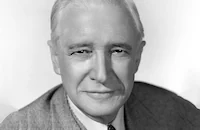
Samuel S. Hinds
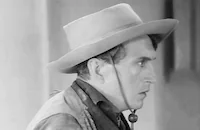
Paul Fix
William Haade
Charles Coleman

Nestor Paiva

Douglas Fowley
Sammy Stein
Harry Seymour
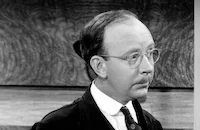
Hobart Cavanaugh
Paul Mcvey
Ed Emerson
Kay Linaker
Frances Morris
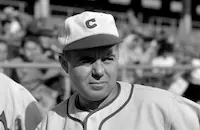
Ray Walker
Virginia Sale
Don Barclay
Wade Boteler
Lorin Raker
Mira Mckinney
John Sheehan
William Ruhl

Harry Cording
Charles Sullivan
Bob Barron
John Dilson
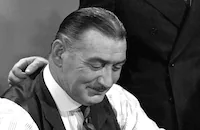
Edward Keane
Gus Glassmire
William Gould
John Marvin
Paul Scott
Alphonse Martell
Tony Warde
Bob Perry
Ben Taggart
Charles Sherlock
Jack C. Smith
Hal Craig
Nolan Leary
Jack Chefe
Brooks Benedict
Phil Warren
Larry Mcgrath
Jack Gardner
Broderick O'farrell
Winifred Harris
Lois Austin
Ethan Laidlaw
Grace Cunard
Sandra Morgan
Irving Mitchell

Bess Flowers
Frank Marlowe
Ed Mortimer
Crew
Bernard B. Brown
Leland T. Doan
Charles K. Feldman
Robert Fellows
Robert Fellows
Paul Fix
John Fulton
Kenneth Gamet
R. A. Gausman
John Goodman
Charles Gould
Robert De Grasse
Harry Kaufman
Paul Landres
Winston Miller
Paul Neal
George Owen
Charles Previn
Tom Reed
Tom Reed
H. J. Salter
Frank Skinner
Dan Thomas
John Twist
Ira S. Webb
Vera West

Film Details
Technical Specs

Quotes
Trivia
Notes
The working title of this film was Out of This Earth. According to information found in the Charles K. Feldman papers at the AFI Louis B. Mayer Library, this project initially began when Lou Breslow and Owen Francis were hired by producer/agent Feldman to write a screenplay called Out of This Earth, based on an original story by Francis. In an October 1940 agreement, Feldman agreed to pay Breslow $337 per week and Francis $175 per week for their work on this project. This agreement also stated that Breslow would be paid approximately $2,000 and Francis $2,500 upon the sale of the script, and that the proceeds from the sale of the script would be split in the following manner: Feldman 50%, Breslow and Francis 25% each.
In July 1941, Feldman then hired George Owen to rewrite the Breslow/Francis script. In February 1942, Feldman transferred the rights to this material to The Feldman-Blum Corp. as compensation for work done by that corporation on this project, as well as other private projects of Feldman. Feldman-Blum then hired writers Robert Fellows, Tom Reed and George Owen to rewrite the script, work which was completed on April 21, 1942. On May 4, 1942, Feldman purchased the rights to the property from Feldman-Blum for $10,526.22, then sold the script to Universal on June 29, 1942. According to the agreement between Feldman and Universal, Feldman was paid $13,500 for this property, as well as 12.5% of the film's first $240,000 in gross receipts, and 25% of the film's net profits. The film was to include billing for "A Chas. K. Feldman Production," rather than "A Chas. K. Feldman Group Production," the title used for Feldman-Blum Corp. productions.
The Feldman papers further indicate that, while the film was in production, writers Kenneth Gamet, John Twist and Winston Miller were brought in to do re-writes, but, according to an October 1942 agreement between Feldman and Universal, the studio was responsible for only $6,500 in writing costs for the project, the remainder being the personal responsibility of Feldman. An undated Universal memo states the writers on the project were paid the following: Kenneth Gamet $4,750; John Twist $3,400; Winston Miller $2,366; and Tom Reed $2,500. In 1943, Owen Francis, terminally ill with heart disease, threatened to sue Feldman for the producer's failure to live up to their October 1940 agreement. In an August 1943 letter to Francis' attorney, Morris Cohn, Feldman argued that no portion of the screenplay written by Francis and Lou Breslow was used in the released film Pittsburgh, and that six other writers (George Owen, Tom Reed, Robert Fellows, Winston Miller, Kenneth Gamet and John Twist) had worked on the project. According to the Feldman papers, rather than giving Francis the $2,500 stated in their contract, Feldman paid the dying writer $250.
According to information in the file on the film in the MPPA/PCA Collection at the AMPAS Library, the film ran into some censorship problems concerning the relationship between the characters "Josie Winters" and "Pittsburgh Markham." In early drafts of the script, it was inferred that Josie had become the mistress of Pittsburgh after his marriage to "Shannon Prentiss." In later drafts and in the finished film, while Pittsburgh makes advances toward Josie, she refuses his propositions. The Feldman papers state that Arthur Lubin was originally slated to direct Pittsburgh, but he left the project on July 15, 1942, prior to Feldman's production deal with Universal. Hollywood Reporter news items report that Universal attempted to borrow Walter Brennan from Sam Goldwyn for the film, but the actor did not appear in the film. Hollywood Reporter news items also state that writer John Twist was borrowed from RKO by Universal for his work on the film.
According to the Feldman papers, the Dow Chemical Company was asked by Universal to act as technical advisor on this film. In a July 1942 letter, Dow Chemical agreed to send A. C. White to act as technical advisor on Pittsburgh, but in a November 12, 1942 letter to Dow Chemical, Feldman states that Leland T. Doan was the man actually sent by the company to act in that position. The Feldman papers also state that Pittsburgh used some stock footage provided by the U.S. Navy's Office of Public Relations, and May have used additional footage from the short film The Big Change-Over, which was then being distributed by the OWI.
Hollywood Reporter production charts include Edgar Barrier in the cast, but his participation in the released film has not been confirmed. According to the film's press book, actor Allan Jones, while performing in the Universal film When Johnny Comes Marching Home , acted as a technical advisor for Pittsburgh's coal mine scenes, having worked in similar mines as a youth. This was the second Universal film of 1942 to star John Wayne, Marlene Dietrich and Randolph Scott, the other being The Spoilers . Wayne and Dietrich had co-starred previously in the 1940 Universal pictuure Seven Sinners (see AFI Catalog of Feature Films, 1931-40; F3.3975). According to a Universal accounting statement of December 1966, the negative cost of Pittsburgh was $630,782.87. The film, at that time, had generated a domestic gross of $929,140.27 and worldwide gross revenues of approximately $1,930,000. The Feldman papers report that, as of October 30, 1954, Charles K. Feldman had received $147,843.98 for his work on this film.

Miscellaneous Notes
Released in United States 1942
Released in United States 1942











